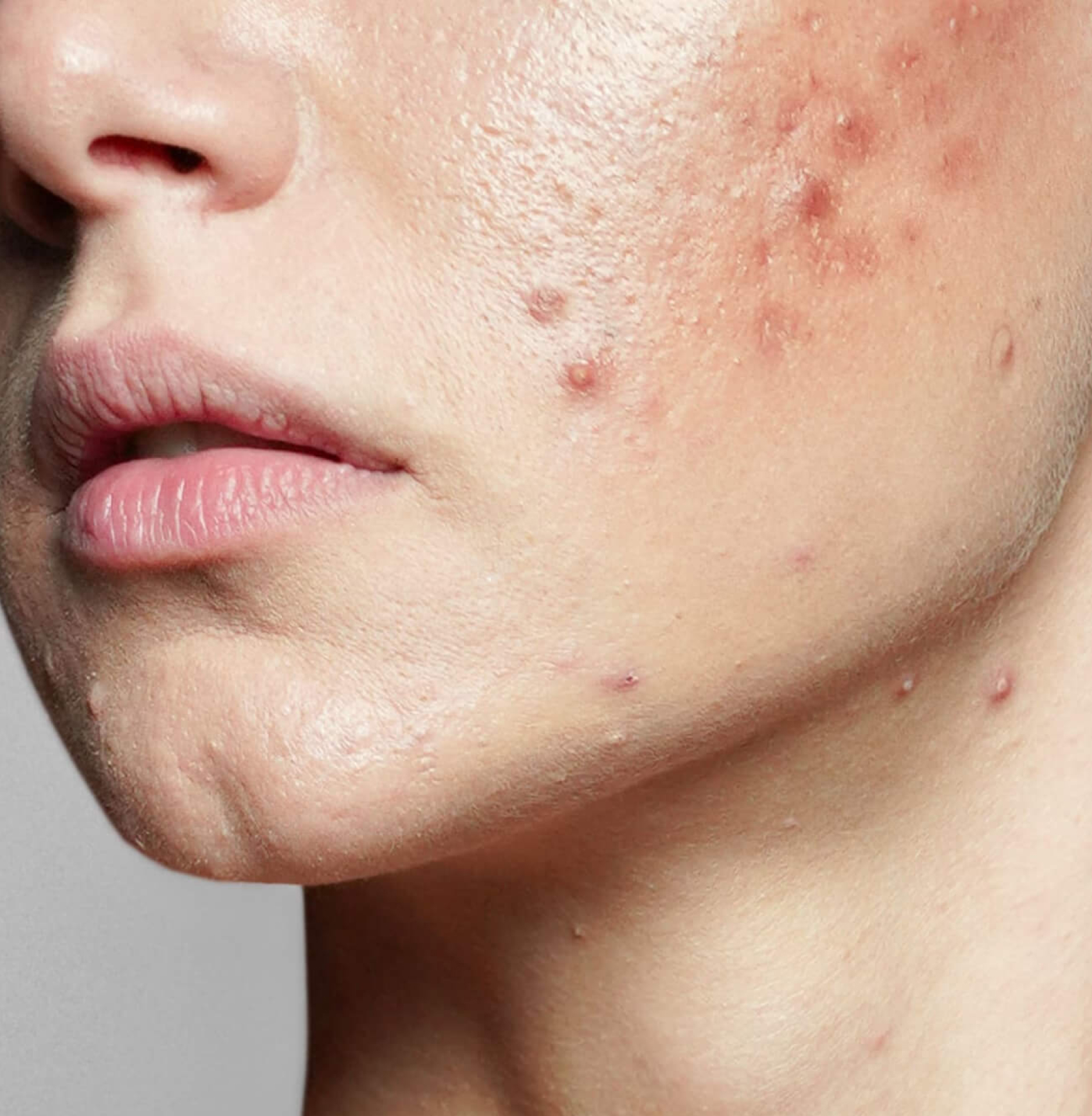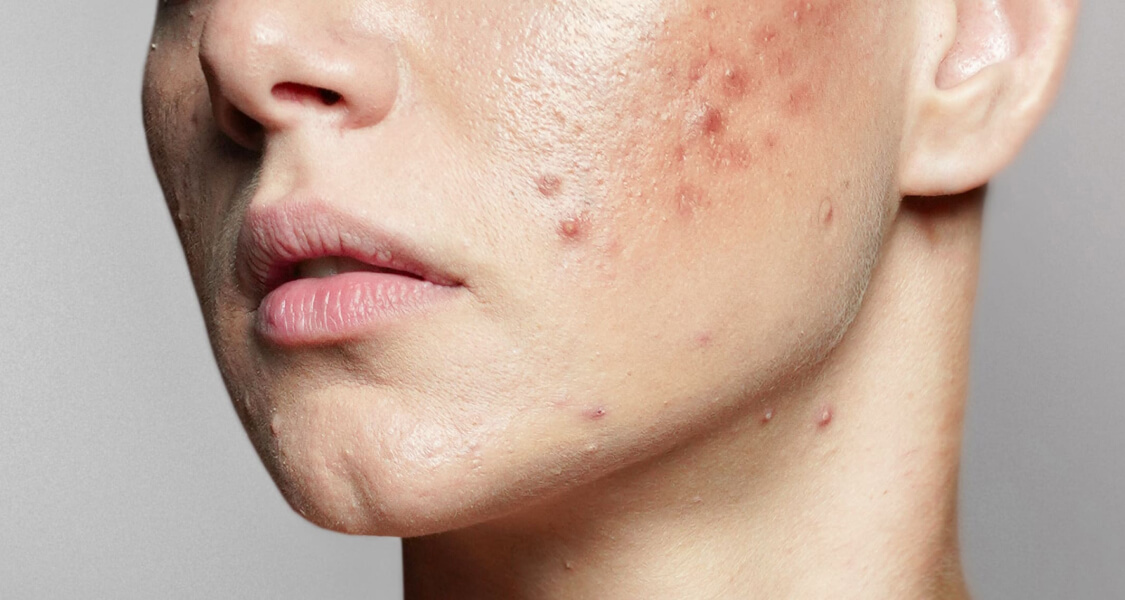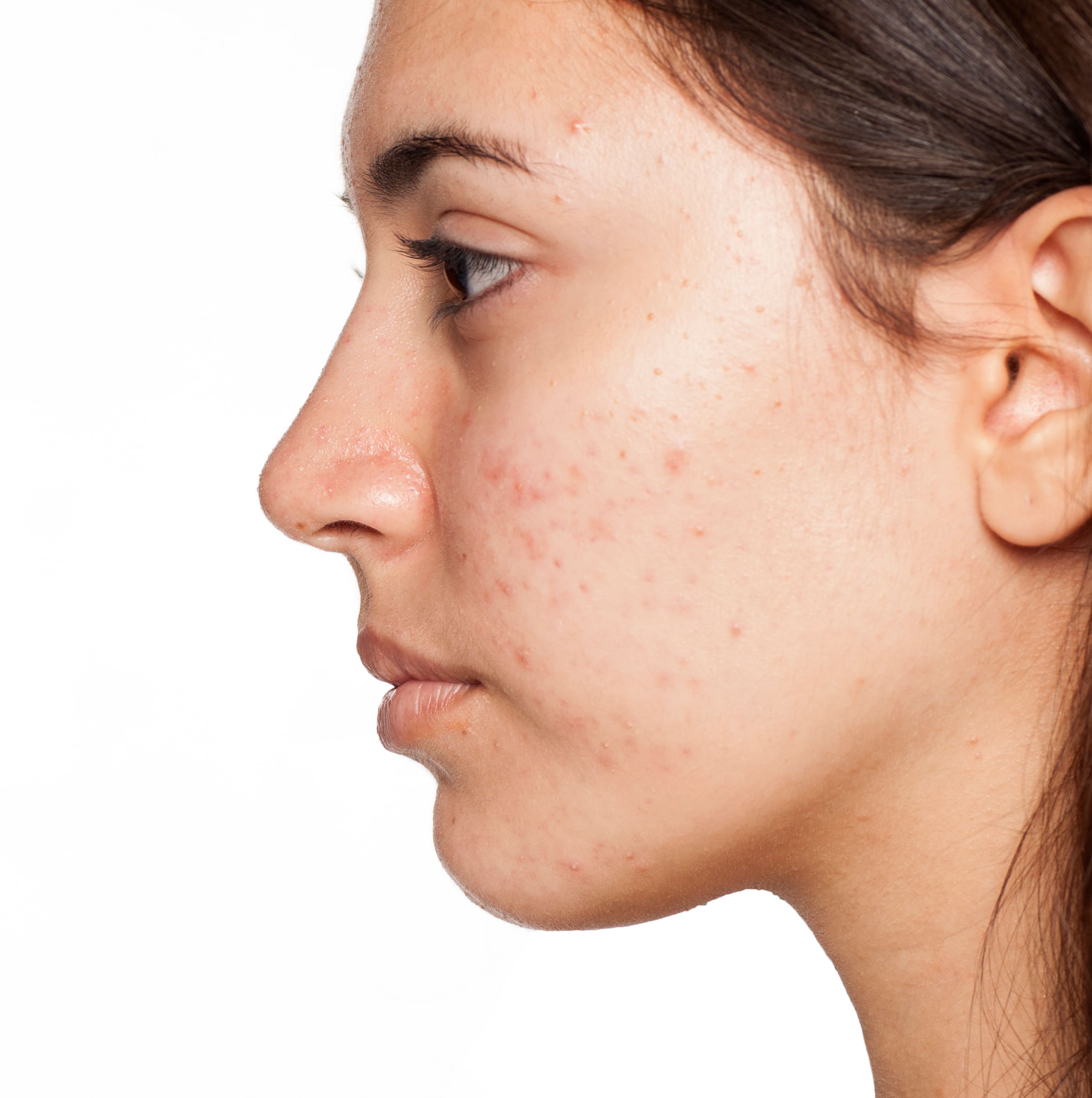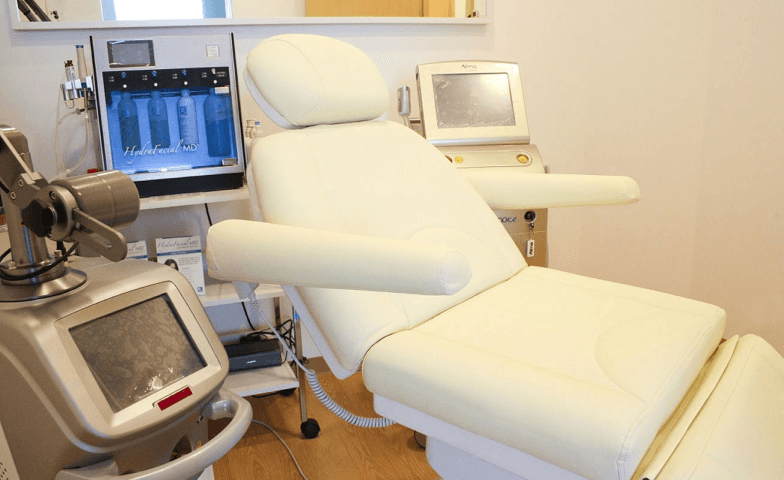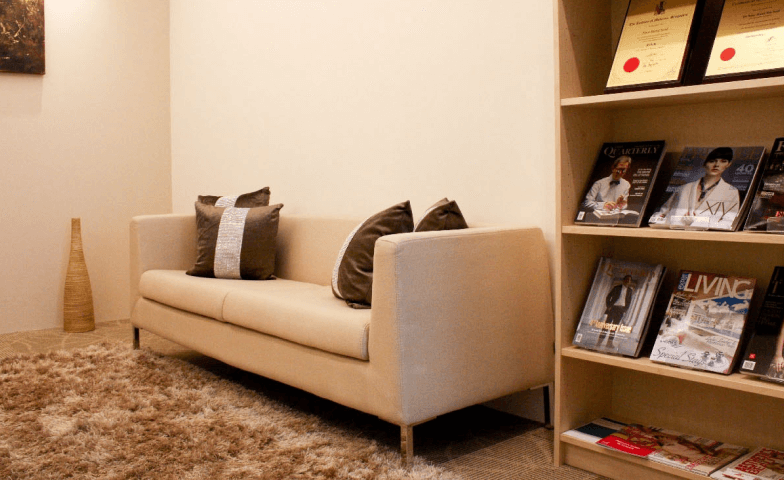Acne Treatment Options
The treatment of acne can include topical medications, oral medications, and other therapies such as the following:
-
Retinoids
Retinoic acids or tretinoin are often used for moderate acne and are available as creams, lotions, and gels. These topical medications prevent the plugging of hair follicles.
-
Antibiotics
Taken either orally or applied topically, antibiotics kill bacteria on the skin and help in reducing redness and inflammation.
-
Azelaic acid
Produced by yeast, azelaic acid is a naturally occurring acid that has antibacterial properties. It is a topical medication option for pregnant women and breastfeeding mothers.
-
Salicylic acid
Salicylic acid helps prevent plugged hair follicles and is available as an ingredient in facial washes and leave-on products such as creams.
-
Combined oral contraceptives
Oral contraceptives that combine progestin and estrogen can be used as acne therapy in women who also wish to use them for contraception.
-
Dapsone
Dapsone is available in gel form and is a recommended treatment for inflammatory acne.
-
Spironolactone
Spironolactone, an anti-androgen drug, can be used for women if oral antibiotics aren’t working. It decreases the activity of the sebaceous glands by blocking the effect of androgen hormones.
-
Isotretinoin
Isotretinoin is a derivative of vitamin A and is available in oral form. It may be prescribed when moderate or severe acne fails to respond to other treatments.
-
Light therapy
Light therapy or phototherapy has been successful at times. Most will require multiple sessions for it to take effect.
-
Chemical peel
Salicylic acid, glycolic acid, or retinoic acid are repeatedly applied to the skin to improve the appearance of the skin and treat mild acne.
-
Drainage and extraction
Using special tools, the doctor removes whiteheads and blackheads or cysts that remain after the use of topical medications. This however might cause scarring.
-
Steroid injection
Nodular and cystic acne can be treated by injecting a steroid drug into the lesions.
